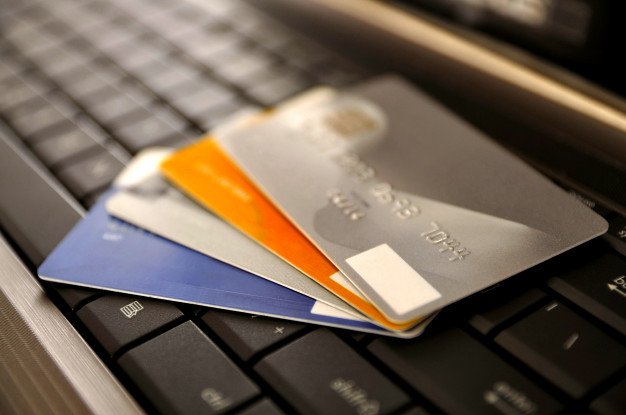Spending is an obvious thing in life. Inasmuch as someone is alive, he or she cannot just avoid spending money. To keep living, we need money. We cannot access some basic necessities such as food without money. Spending money is a basic fact in life. But the manner in which you spend can determine the quality of life you live now and in the future. Proper spending behaviors will protect you from incurring too many costs on an item. In fact, good financial habits will help you not overspend and use your finances in an appropriate manner instead.
It is very important to take time and examine your spending habits. Make the necessary changes and see yourself succeeding financially. The key to financial health is to always stop and think. Before you make a purchase, it is important to ask yourself if the purchase is really necessary. But the most significant thing you can do is to budget. Through budgeting, you can save a lot of money and help you have extra cash to spend. Put differently, your budgeting style along with healthy financial decisions will determine how successful you will be. You need to decide how much money you will regularly spend on some items and stick to that decision. In this blog, we are going to address two things; the wise financial choices that will help you stick to your budget and the best way to outrank bad spending habits with good ones.
A good housekeeper will always know when the home is organized and when it is not. This should always be followed by a remedial course of action. The same thing happens with your budget. You know when it is not effective and then you take steps to redesign it. When it comes to budgeting, you control everything.
One way of appreciating your hard work and efforts is to remain true to your budget and even seek help where necessary. The following tips will help you follow your budget always:
Make it realistic and practical.
Let us take an example of what you set aside for entertainment monthly. If your budget is $80 every month but you spend a total of $240, something is wrong somewhere. The best thing to do is to get to the middle. Increase the allocation to probably $160 and lower your spending down to that level. The more real your budget is, the more you are likely to go by it. So make your budget real and be true to it.
Plan how you spend on meals:
Do you go for grocery unplanned, not knowing how much you are going to spend at the store? That is like taking a financial poison and you might get overwhelmed with time. The point is, you should plan for your meals, breakfast, dinner, and lunch. You do not have to pick whatever appears to be good in the stores. Just visit the stores with a list of the things you are going to pick along with how much you are going to spend on them. Pick all you need and leave the store right away.
Stop using credit cards:
Recent studies show that about 83% of Americans prefer credit card payments to cash. This is because credit card postpones the pain that comes with payments until later in the month. This is a temptation that can make you spend too much money that what is worth for an item. Avoid this problem by sticking to your debit card or cash. Do not allow the challenge that comes with delayed payment to force you into incurring more costs on items than their worth. People even seek loan online as it’s convenient moreover for you to be sure that your lender is legit, they need to explain the loan terms clearly like A1 Credit a trusted financial institution.
Learn to wait:
If you out for window shopping with no desire to make a purchase, then you come across a very nice t-shirt but nothing is left on the money left set aside for clothing, just walk away. Breathe in and convince yourself that you will actually buy it but only next month. By that time, you have accumulated enough cash to make that purchase.
Consider social events:
You perhaps like celebrating events with friends. This could be on events such as weddings and anniversaries. But the problem is that you fail to include the associated costs in your budget. Draft a social calendar and always consult it.
Note your necessities:
Your basic necessities may include food, housing, and medication. If you commute to work, transport cost may also be included in your basic wants. Do not spend too much on luxuries. But note that a basic a luxury to you may be a basic want to someone else. Just define your basic necessities and prioritize them.
Restrict to your budget:
Prioritize your needs and how you spend on them. Set goals on your money. Try to restrict yourself to the provisions of your budget. Do not live beyond your means. Accept to live within your abilities.
It can be quite challenging to stick to your budget. However, it is possible if you fully determined to do that. The seven tips discussed will help you in this regard.
What about your financial habits? Well, let us briefly see how you can break them. It can equally be challenging but you can be successful if you use the following tips.
- Cut spending on clothing. You don’t have to visit a store on a weekly basis. If it is necessary that you spend, but let it be at a thrift store and you will save money
- Eat at home. Incontrovertibly, eating out is expensive. Learn to cook your meals at home. Besides, if you have a family, it is only good to share meals as a family.
- Reduce entertainment costs. Consider free entertainment alternatives around.
- Avoid credit cards. They postpone the pain that comes with making payments at a cost. Learn to use cash or your debit card instead.
- Repay debts in time to avoid extra charges.
- At whatever cost, do not use funds from your retirement account.
Conclusion:
Making a budget and sticking to it are two different things. But if you follow the tips discussed in the first section of this blog, you will be successful. Nevertheless, sticking to your budget can be senseless if you have the same bad spending habits. We have discussed six tips that will help you outrank bad spending behaviors. We wish you the best as you shape your financial life.
Read Also:
- Debt Consolidation Plans For Your Debt Relief
- Ways That You Are Wasting Money On Marketing
- How To Become Financially Stable Before Age 30
- How Financial Trading Can Give You The Life You Want
- How Artificial Intelligence Is Helping Banking And Financial Institutions?
- The Importance Of Saving: The Bedrock Of A Bright Financial Future
























